

Black heirloom tomatoes are now growing in Jabal Akdhar. This is almost impossible a few years back as mountainous areas can be challenging due to cooler temperatures and a shorter growing season.
Due to an introduction of a new initiative, black heirloom tomatoes and other heirloom varieties including leafy greens and commercially expensive vegetables like zucchini, high-end variety of cucumber and different berries used usually for fine dining experiences [and mostly imported from other countries] are starting to proliferate that in a few years, these locally grown produce may actually find their way to local supermarkets.
Officially launched in early July of 2024 through the support of Omran group, Phase 1 covered a 646 sqm area inside the beautiful landscape of Alila Jabal Akdhar in an effort that hotel General Manager Puneet Singh shared addresses food security and independence while also promoting self-sustainability.
"The goal is to encourage everyone within the industry to pursue their own version of food sufficiency and sustainability and through this, the community is able to see what's possible even in a desert or mountain location," he said.
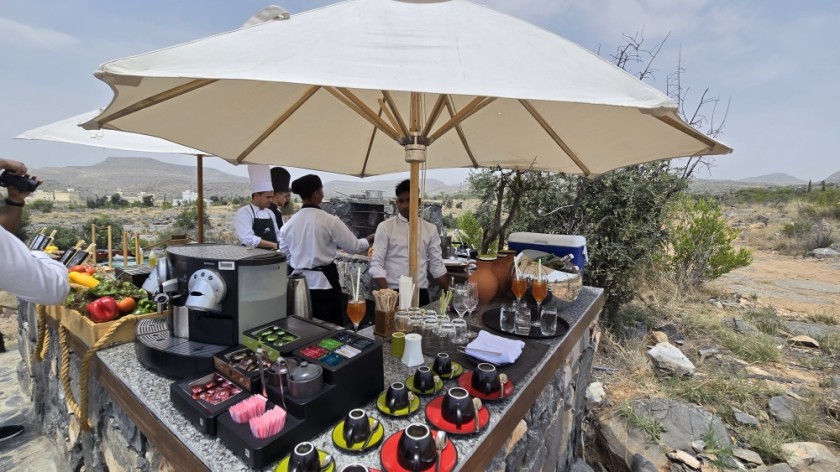
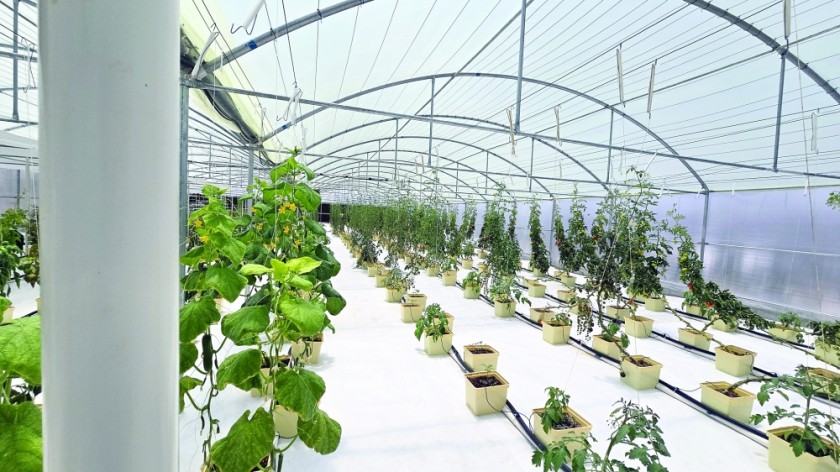
Hydroponics in the mountain
Hydroponics is a method of growing plants without soil, using nutrient-rich water solutions to deliver essential minerals directly to the plant roots. This system allows for precise control over the growing environment, including nutrient levels, pH, and temperature, which can lead to faster growth and higher yields compared to traditional soil-based agriculture.
To successfully grow heirloom tomatoes, certain conditions are ideal. They require full sun exposure with at least 6 to 8 hours of direct sunlight per day. The soil should be well-draining, fertile, and rich in organic matter, with a slightly acidic to neutral pH of 6.0 to 7.0.
"When you do hydroponics, you are maximising the utilisation of space. You can do it in a desert or in the mountains because the plants are not dependent on soil," Singh said.
Common vegetable ingredients suitable for hydroponic growing include lettuce and leafy greens like romaine, butterhead, and kale, which are popular due to their fast growth and high demand in culinary dishes. Herbs such as basil, mint, cilantro, parsley, and thyme thrive in hydroponic systems and are frequently used in fine dining for garnishes and flavouring. Tomatoes, especially heirloom and cherry varieties, are ideal for hydroponics, offering rich flavors and colours desirable in gourmet dishes. Cucumbers grow quickly and can be used in salads, garnishes, and cocktails, while both sweet and hot peppers provide a variety of flavours and colors.
Nearly all of these are already grown with the additions of a few more varities when the second phase is opened sometime late this year.
Unlike traditional farming method, hydroponics uses up to 90% less water due to water recirculation, ideal for areas with scarce water resources. The space-efficient design allows for vertical or tightly spaced planting, maximizing limited arable land. Since no soil is used, it eliminates soil erosion risks, which are common in areas with heavy rains. Hydroponics allows for year-round cultivation in controlled environments, leading to faster growth and higher yields with reduced pesticide use. This sustainable approach enhances food security in regions unsuitable for conventional farming.
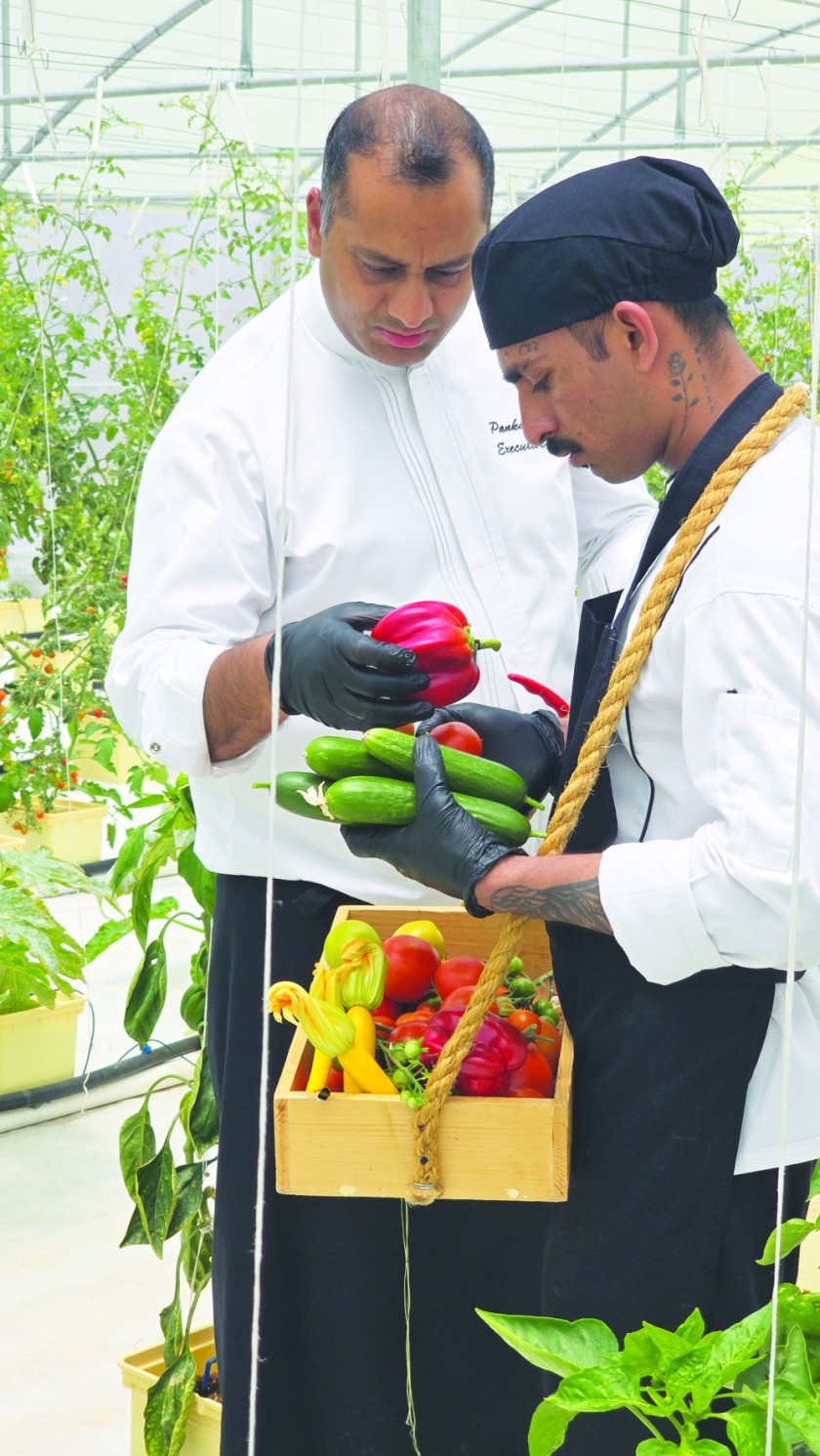
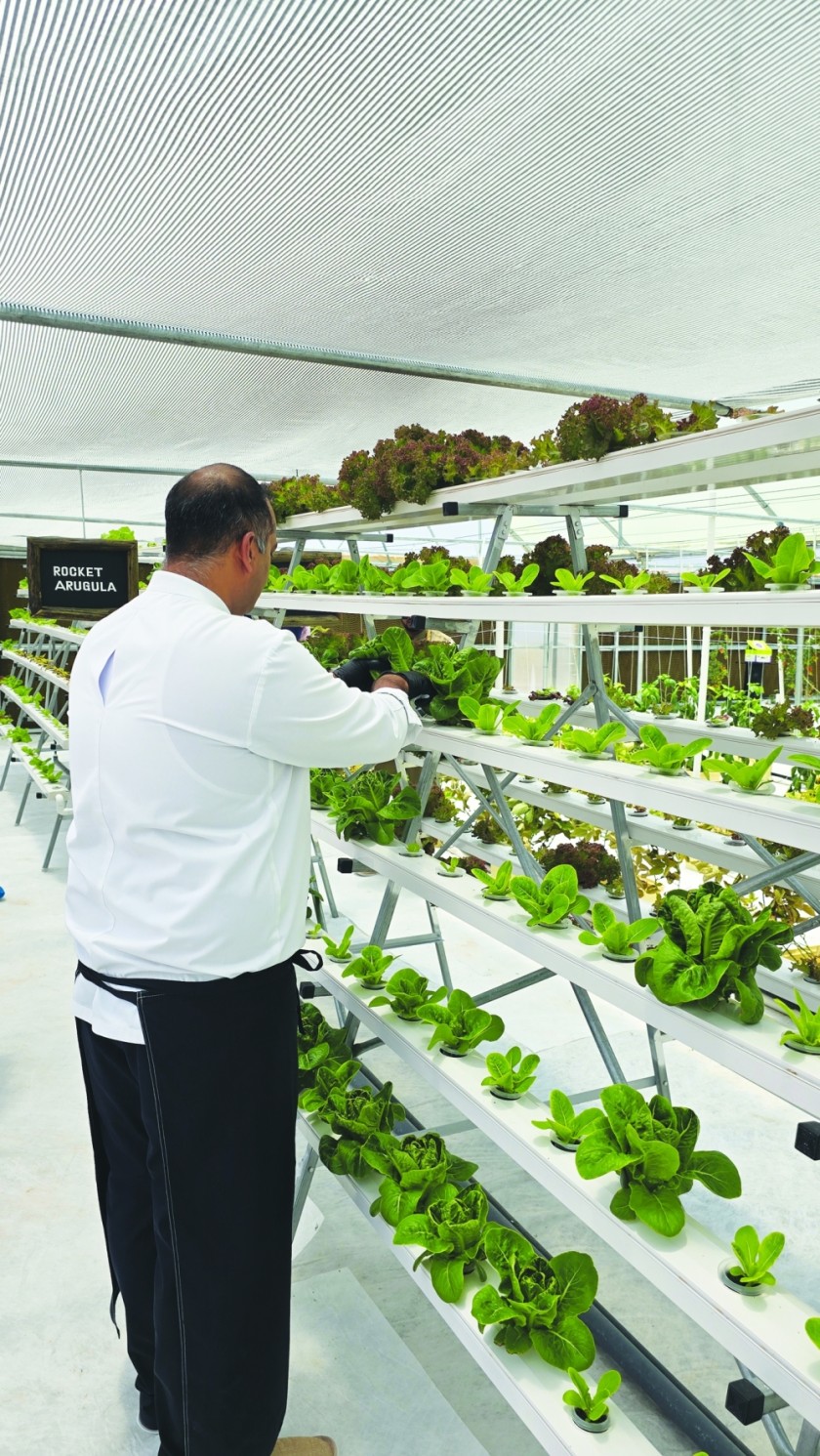
Empowering the community
According to Singh, what the property has been doing is something that can already be seen in other parts of the world. In fact, the clear intention of the initiative is to create a domino effect where other properties and the community in general will be inspired to look into hydroponics.
"We hope for the community to pay attention and take inspiration from this and encourage not just farmers and other property operators to take sustainability seriously and work towards food security," Singh said.
Singh said in time, they hope to open the hydroponics farm for visit especially among school children so they can appreciate new technology and learn new means of growing food.
Providing community access to hydroponics through tours and educational programs raises awareness about sustainable practices and fosters engagement in discussions about food production and environmental impact. It also offers practical experiences and skills needed to set up personal hydroponic systems, promoting self-sufficiency and innovation.
For children, tours can ignite interest in science, technology, and environmental careers, inspiring them to explore these fields further.
Singh also said that they despite their current setup, they are already producing more than enough supply for their kitchen and is looking into making some of the harvest available in the local supermarkets.
"The most logical thing to do is to make the excess harvest available for purchase by other hotels, restaurants and supermarkets," Singh said.
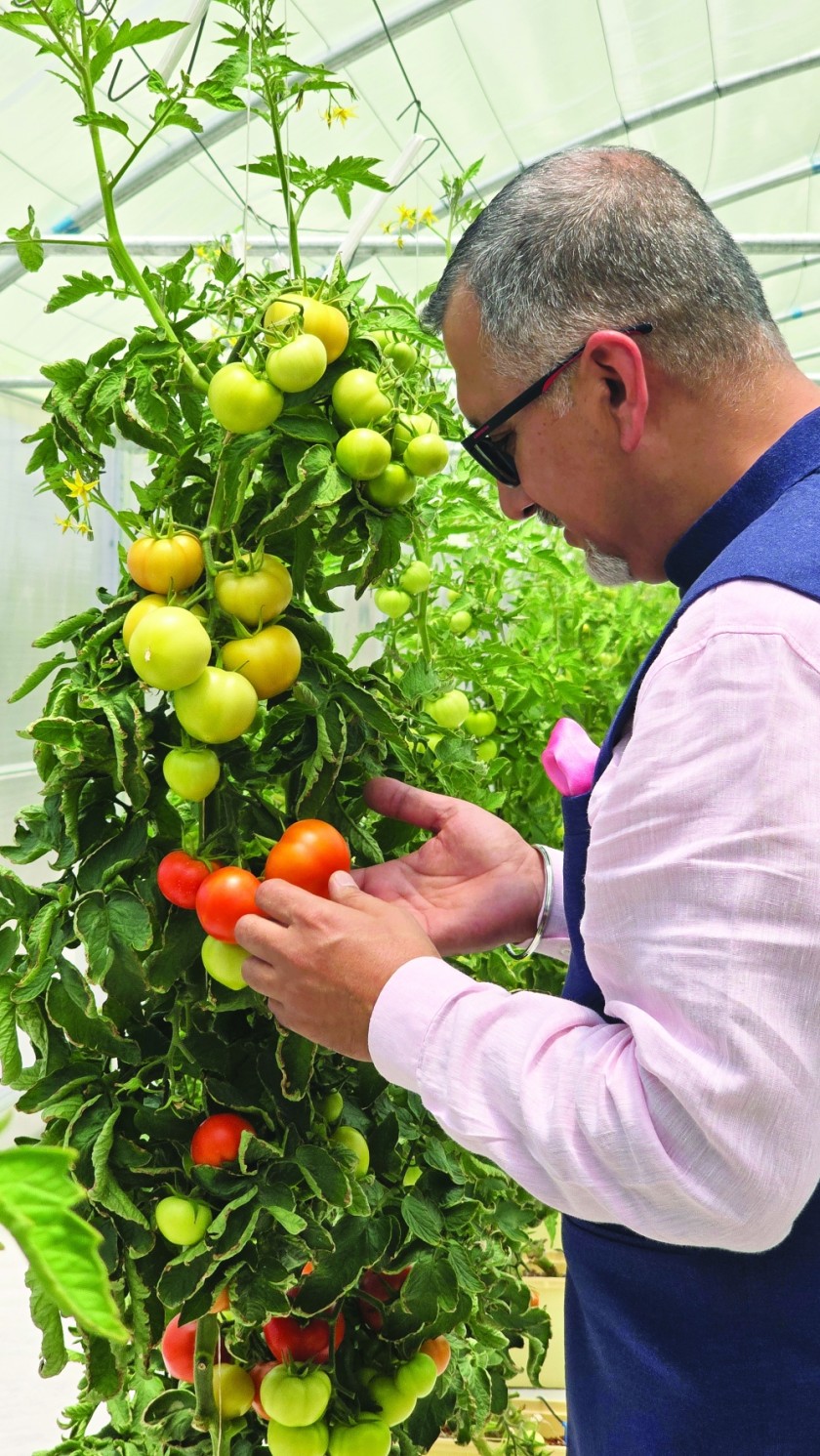
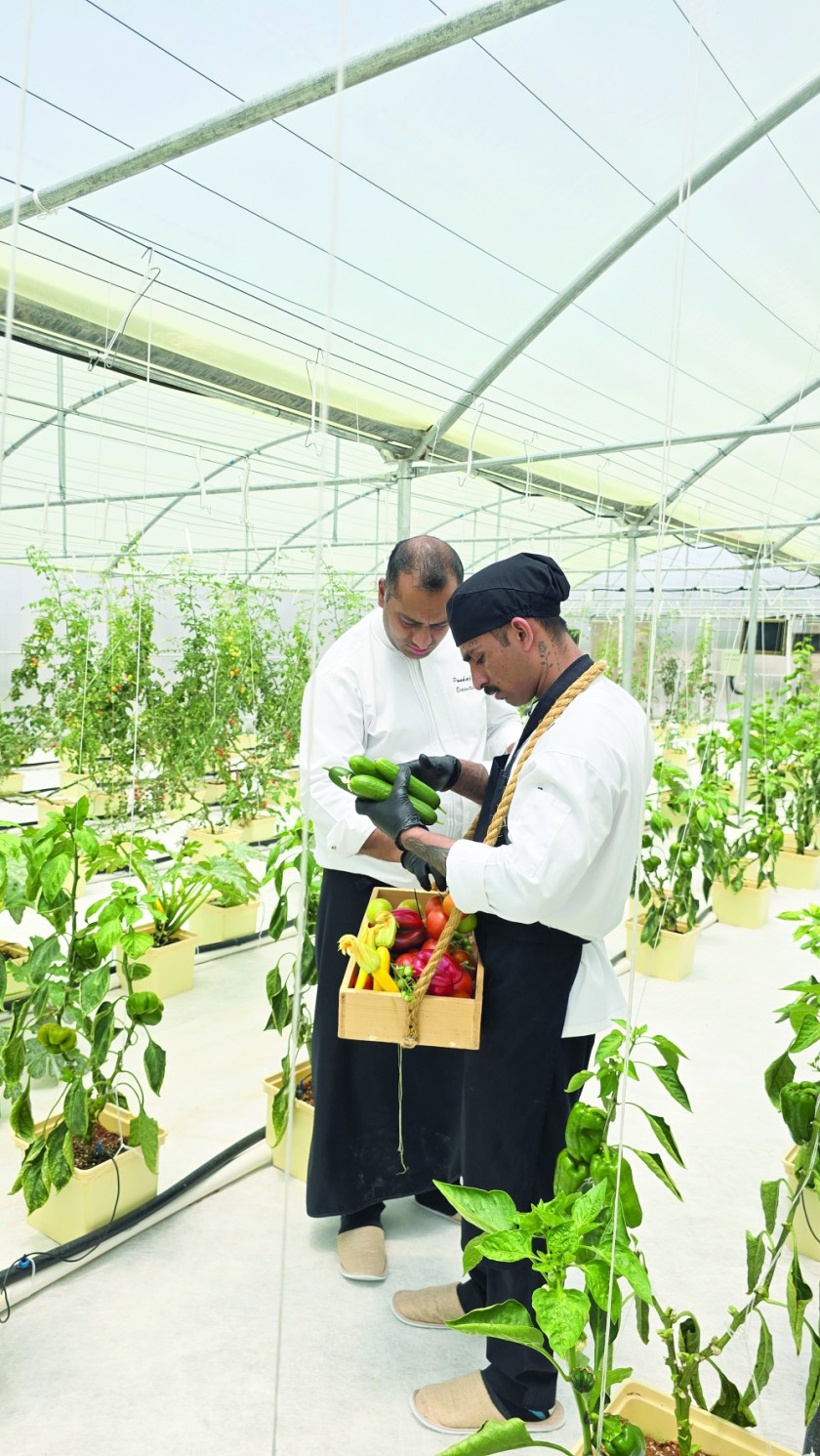
Part of a luxury experience
The hydroponics farm opened a new opportunity for luxurious experience for the guests staying in Alila. Singh said that by allowing guests to harvest the ingredients that will be used in their customised dining experience, they give true meaning to farm-to-table experience.
The "farm-to-table" experience has become a popular catchphrase in luxury hotels due to its emphasis on authenticity, quality, and sustainability.
"By focusing on the direct connection between the source of food and its preparation, luxury hotels are able to offer guests high-quality, fresh, and seasonal ingredients that are often locally sourced. This approach enhances the flavor and nutritional value of dishes while aligning with the growing consumer demand for transparency and authenticity in food sourcing," Singh said.
For Chef Pankaj Walia, executive chef at Alila Jabal Akdhar, "this initiative speaks to our commitment to sustainability. By reducing the carbon footprint associated with long-distance food transportation, we are championing environmental stewardship."
Visitors to Oman can not only enjoy these fresh produce but when they visit the mountains particularly Jabal Akdhar, they have different seasons they can experience — from the freshnesss of the rose and pomegranate harvest season, to our now Honey Harvest season, the hydroponics farm opens up doors for culinary innovation," Chef Walia said.
Oman Observer is now on the WhatsApp channel. Click here



